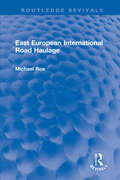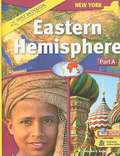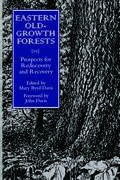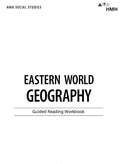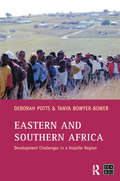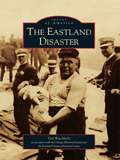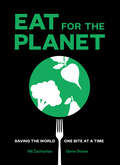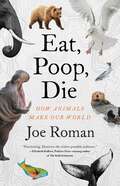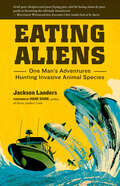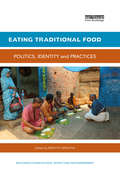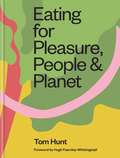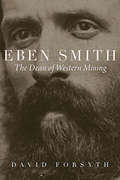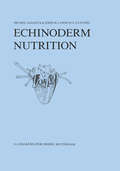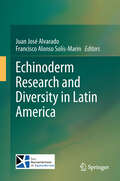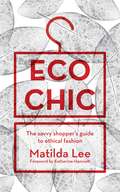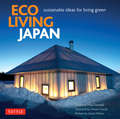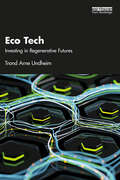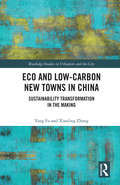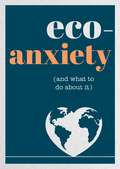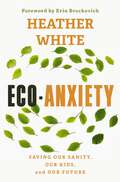- Table View
- List View
East European International Road Haulage (Routledge Revivals)
by Michael RoeOriginally published in 1992, this study examines and analyses the role, planning and operation of international road hauliers based in the former East European countries. It outlines the problems they faced and the opportunities the new model of Europe should have provided at the time. It also emphasizes the role that West European hauliers could play in the market and the activities that the European Community carried out in this field in the light of 1992. It concludes by stressing the actions needed in the near future by governments and operators alike. Today it can be read in its historical context.
Eastern Hemisphere: Part A (New York Student Edition)
by Christopher L. SalterThroughout this textbook, you will be studying the world's people, places, and landscapes. In addition, you will learn about the different kinds of features on Earth and about how geographers use themes and elements to study the world.
Eastern Old-Growth Forests: Prospects For Rediscovery And Recovery
by Anthony Cook Charles Schaadt Steve Comers Mary Byrd Davis J. Merrill Lynch Kathy SeatonEastern Old-Growth Forests is the first book devoted exclusively to old growth throughout the East. Authoritative essays from leading experts examine the ecology and characteristics of eastern old growth, explore its history and value -- both ecological and cultural -- and make recommendations for its preservation.The book provides a thorough overview of the importance of old growth in the East including its extent, qualities, and role in wildlands restoration. It will serve a vital role in furthering preservation efforts by making eastern old-growth issues better known and understood.
Eastern World Geography: Guided Reading Workbook
by Houghton Mifflin HarcourtGuided Reading Workbook (World Geography: Eastern World) 1st Edition with resource materials, workbooks/worksheets, and additional Materials
Eastern and Southern Africa: Development Challenges in a volatile region (Developing Areas Research Group)
by Debby Potts T.A.S. Bowyer-BowerA unique and comprehensive introduction to contemporary development issues in East and Southern Africa, and represents a significant departure from the often descriptive approach adopted by existing regional and development texts on African regions. Each contribution is carefully chosen to highlight the theoretical basis to development issues, and the practical problems of implementing development plans, in this vital subregion. Overall this produces comprehensive and balanced coverage of historical, economic, political and social issues. The twin issues of globalisation and modernisation give the book a clear focus.
Eastland Disaster, The (Images of America)
by Chicago Historical Society land Disaster Historical Society Ted WachholzMore than 7,000 people living in the Chicago area and Michigan City, Indiana, eagerly anticipated Saturday morning, July 24, 1915. This particular Saturday was going to be anything but a routine summer day. Plans had been carefully made for it to be the social and entertainment event of the year, and for some, a lifetime. The fifth annual midsummer excursion and picnic had been organized by the employees of the Western Electric Company's Hawthorne Works. Thousands of carefree merrymakers would enjoy a festive day including a lovely cruise across Lake Michigan to an awaiting parade and day-long picnic. The day would conclude with an evening cruise back to Chicago. For thousands of hard-working immigrant laborers and their families and friends, it was going to be a day to remember. Instead, the day's scheduled event turned into a tragedy unlike any other. The SS Eastland, while still tied to the wharf, rolled into the Chicago River with more than 2,500 passengers on board. Nearly 850 people lost their lives, including 22 entire families. The ensuing struggle for survival, and the resulting death, heroism, cowardice, greed, and scandal gripped the city of Chicago.
Eat Up: The Inside Scoop on Rooftop Agriculture
by Lauren MandelFrom roof to table – urban food has reached new heights.Soaring prices and concerns about chemical-laden fruits and vegetables increasingly drive us to grow our own healthy food close to home. In cities, however, vanishing ground space and contaminated soils spur farmers, activists, and restaurateurs to look to the skyline for a solution. The hunger for local food has reached new heights, and rooftops can provide the space that cities need to bring fresh, organic produce to tables across North America.The first full-length book to focus entirely on rooftop agriculture, Eat Up views this growing movement through a practitioner's lens, explaining:Structural, access, and infrastructural considerationsZoning and building codesProven growing techniquesBusiness and marketing strategiesThis graphically rich guide provides inspiration and advice to aspiring growers through photographs of successful rooftop farms and gardens and interviews with industry professionals. Easy-to-use checklists and a decision tree are included to help gauge the viability of each unique rooftop opportunity. Essential reading for home gardeners, entrepreneurs, restaurateurs, policy makers, academics, and designers, Eat Up takes urban agriculture to a whole new level, proving that rooftop farming is not just pie in the sky—it is the future of urban food.Lauren Mandel holds a master's degree in landscape architecture from the University of Pennsylvania and a bachelor of arts degree in environmental science. She is a project manager and rooftop agriculture specialist at Roofmeadow, where she designs green roofs and oversees green roof and rooftop agriculture projects around the country.
Eat for the Planet: Saving the World One Bite at a Time
by Gene Stone Nil Zacharias“An indispensable guide for anyone who wants to live to age 100—by making sure there’s a livable world when you get there.” —Dan Buettner, New York Times–bestselling author of The Blue ZonesDo you consider yourself an environmental ally? Maybe you recycle your household goods, ride a bike, and avoid too much air travel. But did you know that the primary driver of climate change isn’t plastics, or cars, or airplanes? Did you know that it’s actually our industrialized food system? In this fascinating new book, authors Nil Zacharias and Gene Stone share new research, intriguing infographics, and compelling arguments that support what scientists across the world are beginning to affirm and uphold: By making even minimal dietary changes, anyone can have a positive, lasting impact on our planet. If you love the planet, the only way to save it is by switching out meat for plant-based meals, one bite at a time.“This fascinating, easy-to-read book will give you still another reason to eat plants and not animals: you will be doing a world of good—literally!” —Rip Esselstyn, #1 New York Times–bestselling author of Plant-Strong“Eating plants is not just good for your own health, it’s imperative for the health of the planet. This well-argued, well-written book makes it clear why everyone should consider a plant-based diet today.” —Michael Greger, MD, New York Times–bestselling author of How Not to Die“Possibly the single most important environmental book I’ve read in years. A must for everyone.” —Kathy Freston, New York Times–bestselling author of The Lean
Eat, Poop, Die: How Animals Make Our World
by Joe RomanNAMED A TOP-TEN BEST BOOK OF 2023 BY SCIENTIFIC AMERICAN A &“fascinating&” exploration (Elizabeth Kolbert) of how ecosystems are sculpted and sustained by animals eating, pooping, and dying—and how these fundamental functions could help save us from climate catastrophe. If forests are the lungs of the planet, then animals migrating across oceans, streams, and mountains—eating, pooping, and dying along the way—are its heart and arteries, pumping nitrogen and phosphorus from deep-sea gorges up to mountain peaks, from the Arctic to the Caribbean. Without this conveyor belt of crucial, life-sustaining nutrients, the world would look very different. The dynamics that shape our physical world—atmospheric chemistry, geothermal forces, plate tectonics, and erosion through wind and rain—have been explored for decades. But the effects on local ecosystems of less glamorous forces—rotting carcasses and deposited feces—as well as their impact on the global climate cycle, have been largely overlooked. The simple truth is that pooping and peeing are daily rituals for almost all animals, the ellipses of ecology that flow through life. We eat, we poop, and we die. From the volcanoes of Iceland to the tropical waters of Hawaii, the great plains of the American heartland, and beyond, Eat, Poop, Die, &“compulsively readable&” (Shelby Van Pelt), takes readers on an exhilarating and enlightening global adventure, revealing the remarkable ways in which the most basic biological activities of animals make and remake the world—and how a deeper understanding of these cycles provides us with opportunities to undo the environmental damage humanity has wrought on the planet we call home.
Eating Aliens: One Man's Adventures Hunting Invasive Animal Species
by Hank Shaw Jackson LandersNorth America is under attack by a wide range of invasive animals, pushing native breeds to the brink of extinction. Combining thrilling hunting adventures, a keen culinary imagination, and a passionate defense of the natural environment, Eating Aliens chronicles Landers’ quest to hunt 12 invasive animal species and turn them into delicious meals. Get ready to dig into tacos filled with tasty black spiny-tailed iguana!
Eating Smoke: Fire in Urban America, 1800–1950
by Mark TebeauDuring the period of America's swiftest industrialization and urban growth, fire struck fear in the hearts of city dwellers as did no other calamity. Before the Civil War, sweeping blazes destroyed more than $200 million in property in the nation's largest cities. Between 1871 and 1906, conflagrations left Chicago, Boston, Baltimore, and San Francisco in ruins. Into the twentieth century, this dynamic hazard intensified as cities grew taller and more populous, confounding those who battled it. Firefighters' death-defying feats captured the popular imagination but too often failed to provide more than symbolic protection. Hundreds of fire insurance companies went bankrupt because they could not adequately deal with the effects of even smaller blazes.Firefighters and fire insurers created a physical and cultural infrastructure whose legacy—in the form of heroic firefighters, insurance policies, building standards, and fire hydrants—lives on in the urban built environment. In Eating Smoke, Mark Tebeau shows how the changing practices of firefighters and fire insurers shaped the built landscape of American cities, the growth of municipal institutions, and the experience of urban life. Drawing on a wealth of fire department and insurance company archives, he contrasts the invention of a heroic culture of firefighters with the rational organizational strategies by fire underwriters. Recognizing the complexity of shifting urban environments and constantly experimenting with tools and tactics, firefighters fought fire ever more aggressively—"eating smoke" when they ventured deep into burning buildings or when they scaled ladders to perform harrowing rescues. In sharp contrast to the manly valor of firefighters, insurers argued that the risk was quantifiable, measurable, and predictable. Underwriters managed hazard with statistics, maps, and trade associations, and they eventually agitated for building codes and other reforms, which cities throughout the nation implemented in the twentieth century. Although they remained icons of heroism, firefighters' cultural and institutional authority slowly diminished. Americans had begun to imagine fire risk as an economic abstraction.By comparing the simple skills employed by firefighters—climbing ladders and manipulating hoses—with the mundane technologies—maps and accounting charts—of insurers, the author demonstrates that the daily routines of both groups were instrumental in making intense urban and industrial expansion a less precarious endeavor.
Eating Traditional Food: Politics, identity and practices (Routledge Studies in Food, Society and the Environment)
by Brigitte SebastiaDue to its centrality in human activities, food is a meaningful object that necessarily participates in any cultural, social and ideological construction and its qualification as 'traditional' is a politically laden value. This book demonstrates that traditionality as attributed to foods goes beyond the notions of heritage and authenticity under which it is commonly formulated. Through a series of case studies from a global range of cultural and geographical areas, the book explores a variety of contexts to reveal the complexity behind the attribution of the term 'traditional' to food. In particular, the volume demonstrates that the definitions put forward by programmes such as TRUEFOOD and EuroFIR (and subsequently adopted by organisations including FAO), which have analysed the perception of traditional foods by individuals, do not adequately reflect this complexity. The concept of tradition being deeply ingrained culturally, socially, politically and ideologically, traditional foods resist any single definition. Chapters analyse the processes of valorisation, instrumentalisation and reinvention at stake in the construction and representation of a food as traditional. Overall the book offers fresh perspectives on topics including definition and regulation, nationalism and identity, and health and nutrition, and will be of interest to students and researchers of many disciplines including anthropology, sociology, politics and cultural studies.
Eating for Pleasure, People & Planet
by Tom Hunt'If we could all live and eat a little more like Tom the world and the food chain would be in much better shape.' Anna Jones'This book is like a hybrid of Michael Pollan and Anna Jones. It combines serious food politics with flavour-packed modern recipes. This is a call-to-arms for a different way of eating which seeks to lead us there not through lectures but through a love of food, in all its vibrancy and variety.' Bee WilsonTom's mission is to teach a way of eating that prioritises the environment without sacrificing pleasure, taste and nutrition.Tom's manifesto, 'Root to Fruit' demonstrates how we can all become part of the solution, supporting a delicious, biodiverse and regenerative food system, giving us the skills and knowledge to shop, eat and cook sustainably, whilst eating healthier, better-tasting food for no extra cost.
Ebb and Flow: How to Connect with the Patterns and Power of Water
by Easkey BrittonAn exploration of water's power to heal us, inspire us and offer us spiritual meaning. This is a feminist reimagining of the meaning of power through the lens of water. Easkey offers a range of wellness practices to encourage the reader to connect with water as healer, restoring a relationship of care.Our strength lies in being soft like water. This book is about the power we gain by connecting to water. It&’s about how we can restore our relationship with the world's different bodies of water, and by doing so, restore both the water and ourselves. By sharing Easkey's own experiences as surfer and marine scientist, as well as those of many of her mentors who are at the forefront of water protection and activism around the world, it guides readers into reimagining the spirituality of water and restoring our innate connection with this lifeblood of the planet.The book also provides the reader with water-inspired strategies to restore calm, reduce stress and soothe anxiety. These range from simple breathing and visualization exercises to undertaking a journey from a water source to the ocean in order to forge a deep connection with the water. The emphasis is as much on the benefit to water as it is to the individual, and on creating a culture of reciprocity and care. By regaining this lost connection with water, we learn to develop an empathic connection with the force of all life and in the process restore our own hearts and minds.
Ebb and Flow: Tides and Life on Our Once and Future Planet
by Tom KoppelEbb and Flow was named one of 2007’s "best science books" by Peter Calamai, science editor of the Toronto Star [Dec. 30, 2007]. He calls it a "wonderful resource book. Tom Koppel seems to have visited or read about every place with unusual tides and water currents, yet he wears this scholarship lightly." Tides have shaped our world. They have carved out shorelines, transformed early life on Earth, and altered the course of human civilization. Tides frustrated Alexander the Great and Julius Caesar, and aided General MacArthur. They govern the way our planet moves, provide us with an alternative source of energy, and may be aggravating global climate change. Drawing on science, history, and personal memories, Koppel’s fascinating book engages and enlightens, demonstrating that a subject we take for granted affects all our lives. He weaves together three grand narratives, exploring how tides impact coasts and marine life, how they have altered human history and development, and how science has striven to understand the surprisingly complex way in which tides actually work.
Eben Smith: The Dean of Western Mining (Mining the American West)
by David ForsythDavid Forsyth recounts the life of Eben Smith, an integral but little-known figure in Colorado mining history. Smith was one of the many fortune seekers who traveled to California during the gold rush and one of the few who found what he sought. He moved to Colorado in 1860 with business partner Jerome Chaffee and over the next forty-six years was involved in mining in nearly every major camp in the state, from Central City to Cripple Creek, and in the development of mines such as the Bobtail, Little Jonny, and Victor. He was eulogized by the Denver Post and Denver Times as the “dean of mining in Colorado.” The mining teams Smith formed with Chaffee and with industrialist David Moffat were among the most successful and respected in Colorado, and many in the state held Smith in high regard. Yet despite the credit he received during his lifetime for establishing Colorado’s mining industry, Smith has not received much attention from historians, perhaps because he was content to leave public-facing duties to his partners while he concerned himself with managing mine operations. From Smith’s early years and his labor in the mines to his rise to prominence as an investor and developer, Forsyth shows how Smith used the mining and milling knowledge he acquired in California to become a leader in technological innovation in Colorado’s mining industry.
Ebene Potentialströmungen: Grundlagen und Fallbeispiele
by Valentin SchröderDas Buch zielt darauf ab, Studierenden des Maschinenbaus, der Verfahrens- und Umwelttechnik sowie des Wasserbaus den Einstieg in das Thema ebener Potentialströmungen zu vermitteln. Hierbei werden grundlegende Zusammenhänge (z.B. Stromfunktion, Potentialfunktion, usw.) abgeleitet. Dies geschieht in detaillierter Vorgehensweise („Step by Step“), sodass der Leser beim Nachvollziehen der Ableitungsschritte auf keine Verständnisschwierigkeiten stoßen sollte. Mathematische Grundlagen der Ingenieurwissenschaften werden bei der Benutzung des Buchs vorausgesetzt. Neben dem genannten Basiswissen ebener Potentialströmungen tragen zahlreiche Anwendungsbeispiele zum besseren Verständnis der Grundlagen bei. Auch hier wird großer Wert auf eine gut strukturierte, leicht nachvollziehbare Vorgehensweise gelegt. In den meisten Fällen kommt hierbei ein Tabellenkalkulationsprogramm zum Einsatz, was sich als eine nicht zu unterschätzende Hilfe erweist.
Echinoderm Nutrition
by John M. Lawrence Michel JangouxThe purpose of this book is to present the state of knowledge concerning nutrition and point out directions for future work for the Echinodermata, an ancient group which shows great diversity in form and function, and whose feeding activities can have great environmental impact.
Echinoderm Research and Diversity in Latin America
by Francisco Alonso Solis-Marin Juan José AlvaradoThis book compiles for the first time the development of echinoderm research in Latin America. The book contains 17 chapters, one introductory, 15 country chapters, and a final biogeographic analysis. It compiles all the investigations published in international and local journals, reports, theses and other gray literature. Each chapter is composed of 7 sections: introduction describes the marine environments, and main oceanographic characteristics, followed by a history of research account divided by specific subjects. The next section addresses patterns of distribution and diversity. A specific section would explain fishery or aquaculture activities. The next sections deal with environmental and anthropogenic threats that are affecting echinoderm, and any conservation or management action. Finally, a section with conclusions, needs and new lines of research. The book will include two appendixes with species lists of all echinoderms with bathimetric data, habitat and distribution.
Eco Chic: The savvy shopper's guide to ethical fashion
by Matilda LeeThe hottest trend on the catwalk is ethical clothing. Top fashion designers and spokesmodels including Katharine Hamnett, Stella McCartney and Bono's wife Ali Hewson are all voicing the benefits of eco chic. But what is this new fad, and what difference can it make to the world? "Eco Chic" gives you the full story on this fashion phenomenon, from which fabrics are harmful to the environment, to how you can create your own eco-friendly fashions through recycling and savvy shopping. You will discover how to spot and avoid garments produced in sweatshops and why supermarket 'fast clothes' make both you and the planet sick. This book will allow you to look great but also feel good about your impact on other people and the planet as a whole.
Eco Living Japan: Sustainable Ideas for Living Green
by Deanna MacdonaldJapan is equally as well known for its ecologically-sensitive traditional homes as it is for cutting-edge, green technology.Eco Living Japan presents 19 contemporary Japanese houses which exemplify the most recent trends in sustainable design in Japan. This is wabi-sabi for the 21st century! With over 250 photos, drawings, plans and lively, informative text, this sustainable architecture book offers a picture of green living in contemporary Japan and provides inspiration and practical ideas for those creating homes in North America and other 4 season climates. Each project presents different aspects of Japan's current movement toward a more sustainable living environment as well as its focus on fine craftsmanship and cutting-edge technology.The book's content is informative and enjoyable for both professional architects and forward-thinking homeowners. Anyone with an interest in Japanese design and trends in sustainable living will find fresh ideas for their own home projects. These homes work in harmony with their environments and with the people who inhabit them- "green design" at its best!
Eco Tech: Investing in Regenerative Futures
by Trond UndheimThe book is a seminal contribution from a leading futurist who, over the past three decades, has explored each of the most disruptive forces shaping our world today, including emerging technologies, entrepreneurship, venture investments, and industrial manufacturing. Eco Tech brings all this thinking together, fusing insight from thought leaders with the author’s own considerable experience, to explore scenarios for 2050 and discuss eco-effectiveness as an established practice for governments, corporations, startups, and individuals. Trond Arne Undheim begins by providing a brief history of sustainability and provides simple definitions for key terms including eco-efficiency, life cycle analysis, industrial ecology, cleantech, net zero, climate change, biodiversity, and carbon capture, which will enable the reader to engage confidently in eco-discussions. Undheim also explores the ambitions of regeneration and offers a new conceptual framework to facilitate future discussion around sustainable innovation. He applies this framework to green, ambitious start-ups and examines the way these ventures will lead the way towards an eco-effective society, drawing on stories from exciting founders who are already changing the world. Finally, the book takes a deep dive into emerging eco-innovations, including batteries, bioplastics, distributed energy, space tech, and futuristic megaprojects. The book contains clear directions on how to progress through adversity and avoid returning to the status quo. The book will be an essential guide for executives, sustainability professionals, and energy tech investors who are deeply concerned with the future and are prepared to both significantly invest in it and make behavioral changes to foster regenerative development. It will also be a great resource for students and scholars of sustainable investing and innovation.
Eco and Low-Carbon New Towns in China: Sustainability Transformation in the Making (Routledge Studies in Urbanism and the City)
by Xiaoling Zhang Yang FuThis book examines the sustainability transition theory in the context of urbanization in China, tracing the development of eco and low-carbon cities. It examines how ideas on building eco-cities and low-carbon cities travel from nation to nation, how they are adopted in the Chinese administrative context and what role inter-scalar actors play in getting the ideas transferred, translated and operationalized on the ground. Offering an overarching theoretical framework that incorporates all urban sustainability experiments in China, the book conducts a comprehensive analysis of the master plans of these new towns and summarizes the normative transition targets of sustainable urban experiments. It explores how they differ from each other and how they influence transition dynamics in practice. By examining four eco and low-carbon new towns deemed representative of current major approaches to sustainability transition management in China, the book provides a detailed depiction of generic transition management and explains the different transitional trajectories for each type of sustainable urban experiment. It demonstrates how subnational-level and city-level transitions mediate the national transition. Through a thorough inquiry into inter-scalar dynamics, institutional arrangements and techno-social innovations in sustainable urban experiments, the book links generalized transition rules and specific contexts to present a full view of the challenges, failures and territorial problems of eco and low-carbon new towns. This book makes a novel contribution to the study of Chinese urbanization by revisiting issues and problems of contemporary urban China. The reflection on these urban issues will provide implications to policymakers, professionals and the common reader interested in the future sustainable urbanism in China.
Eco-Anxiety (and What to Do About It): Practical Tips to Allay Your Fears and Live a More Environmentally Friendly Life
by Harriet DyerBe kind to the planet, but most of all, be kind to yourselfWhen you feel the weight of the world on your shoulders, grab this book for a dose of calm and courage. Packed with reassuring tips and advice, from mindfulness exercises to practical steps you can take to make a difference, this guide will ease your eco-anxiety and help you to live a more environmentally friendly life.
Eco-Anxiety: Saving Our Sanity, Our Kids, and Our Future
by Heather WhiteThe climate crisis and its resulting eco-anxiety is the biggest challenge of our time. The anxiety that comes with worrying about how environmental harm will impact our--and our children's--lives can be overwhelming. Learn how to balance practicing daily sustainability actions while caring for your own eco-anxiety in this revolutionary book from noted environmentalist Heather White.In Eco-Anxiety, White shows you how to contribute to the climate movement through self-discovery and self-care. Utilizing the Service Superpower Profile Assessment included in the text, you&’ll discover how your personality, interests, and strengths can be of service to others and the planet. This book will serve as your guide to:Begin a 21-Day Kickstarter Plan that shares specific sustainable actions you can takeTrack your progress with journal prompts and exercises that'll help you measure mental health benefitsListen and talk with loved ones about their climate anxietyCommit to being an eco-aware individual and inspire your family, friends, and community to work toward a regenerative, sustainable worldSetting the intention each day to take a small step to care for the planet--can help ease your eco-anxiety, push the culture toward climate solutions, and create a sense of joy.One Green Thing>
